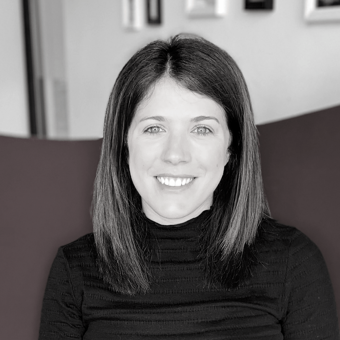The founder of Cheshire and Manchester-based Maguire Family Law tells the Brief about a career that has taken in some of the region’s top firms, the importance of personal relationships in his field of practice, and how the withdrawal of Legal Aid might, perversely, be putting additional pressure on the courts.
Maguire Family Law is a specialist firm ranked in Tier One by the Legal 500. Founded in 2010, it has offices in the Cheshire towns of Wilmslow, Knutsford, Altrincham and, as of earlier in 2024, Manchester city centre.
Founder James Maguire studied law at the University of Sheffield and trained in Nottingham, qualifying in 1995, before moving to Manchester in 2001. He became a partner at Cobbetts in 2003, and at DWF following the latter firm’s acquisition of the former in 2007.
At university Maguire’s favourite subject had been employment law, and he sees his later specialisation in family law as part of a continuum rather than a break with this.
“A lot of people say there is a similarity, or synergy, between employment and family,” he says. “In my case I suppose a lot of it is that I like dealing with people.
In family work you get to know your clients very well and hopefully form a good relationship with them over a 12- or 18-month period.
Flying solo
Although a high-flyer in one of the region’s top family law teams, he began considering his options as he entered his late 30s and early 40s.
“I started thinking about where I was going, and where I wanted to be in ten years’ time,” he recalls. “I thought that the firm I was working for was good, and the team was very good, and that going to work somewhere else might feel like a sideways move.
“However, I can be quite competitive against myself and, to cut a long story short, I decided to fly solo in 2010.”
Initially he worked from his home in Cheadle, South Manchester. Any early insecurities about not attracting enough work were quickly dispelled and, partly to provide release from the pressures of working flat out in the family home, he opened an office in Wilmslow, Cheshire, six months later.
The firm’s Knutsford office followed in 2019, with Altrincham opening soon afterwards. None of these offices if far from the others but, Maguire says, “The nature of private clients is that they prefer you to be on their doorstep.
Each of the offices might only be 15 minutes apart by car, but people don’t want to travel, so it makes sense for us to have this depth of local coverage.
The new Manchester office builds on this, and is primarily used for client meetings, although it also provides a base for building professional connections with other city centre businesses.
Keeping it personal
Personal recommendations, Maguire continues, are probably more important for family lawyers than corporate brand recognition: “Are people going to come to you at a crisis point in their lives because of your firm’s name or your nice offices, or are they going to come to you because they have heard about you and you have a good reputation?”
Although a recent office opening inevitably places a focus on the firm’s physical footprint, Maguire is keen to point out that, having himself worked from home at the firm’s inception 14 years ago, Maguire Family Law has long embraced hybrid working. However, this does not mean solicitors working in their own bubbles.
He says, “We have teams, often of two or three, that would usually include a senior solicitor and a junior solicitor, working on each particular case. This means clients know that if one solicitor isn’t available for some reason then the other person will know where things are up to with their case.”
Big numbers
The firm operates in an affluent area, and about two-thirds of its matrimonial work is focused on financial matters, with the remainder being children matters – although, of course, it differs from case to case.
Although he believes family law was sometimes seen as the poor relation by larger firms, he points out that family practitioners could be dealing with cases valued at over £100 million, and that he has even handled cases valued at more than £1bn – the kinds of values that don’t come along very often even for the biggest corporate matters handled outside of London.
Maguire says, “You can be dealing with some big numbers, and some quite complicated issues. Also, as a business model, while I wouldn’t say family law is necessarily immune from the various turns the economy might take, as one of the senior partners at Cobbetts used to say, ‘Where there are people, there are disputes.’”
Although the firm is based around Cheshire’s “Golden Triangle”, many of the cases it handles involve complex international elements, and Maguire himself took the California Bar Exam in 2008. He is a member of the Law Society Child Abduction Panel and has been singled out by the Legal 500 for his work on child relocation and abduction matters.
He says, “A lot of my family work is international, covering jurisdiction, finances and child abduction work, so you get to see how other jurisdictions work.
We always tend to think that the way we deal with things must be the right way, but other countries sometimes have better ways, and we can adopt their ideas.
Access to justice
For disputes to be resolved efficiently, however, a properly resourced court system is a prerequisite. That the current system is under intolerable strain is not news to anyone in the legal profession, and one of the reasons Maguire identifies for this is the withdrawal of Legal Aid since 2013 for most family matters.
He says, “The government wants to divert people away from court, so courts are closed, Legal Aid is taken away, and people are pointed toward mediation, which has its place, but isn’t for everyone.
“And, of course, if the parties don’t have access to legal advice, because of the withdrawal of Legal Aid, then their response is to go to court anyway.
“As solicitors I don’t think we see the half of it, but you will have people representing themselves in person, and not knowing what compromise might look like or being able to make an informed decision because of emotion and a lack of knowledge of the law and of court processes.
As a result, these cases take longer than they need to, causing bottlenecks, and huge delays in the system, which is particularly unacceptable in relation to children matters.
No fault at fault?
Another thing that worries Maguire, particularly when coupled with restricted access to legal advice, is the introduction in 2022 of no-fault divorces. In this case, his concerns highlight the role of a family solicitor as, in the first instance, a counsellor as much as a legal adviser.
He says, “I suppose no-fault divorces might be for the greater good in terms of minimising conflict between the parties, but there might be an argument to say that it’s too easy for people to get divorced now because it’s online, you go onto the portal pay a court fee, click a button, and that sets the process off.
“Sometimes, though, my best advice at a first meeting is to come back to me in three or six months’ time. Something may have happened in a relationship, but that doesn’t necessarily mean it’s the end, and sometimes people can – particularly when they are fuelled by emotive advice from family and friends – make the wrong decision.”
Visit
Connect with James Maguire via LinkedIn









